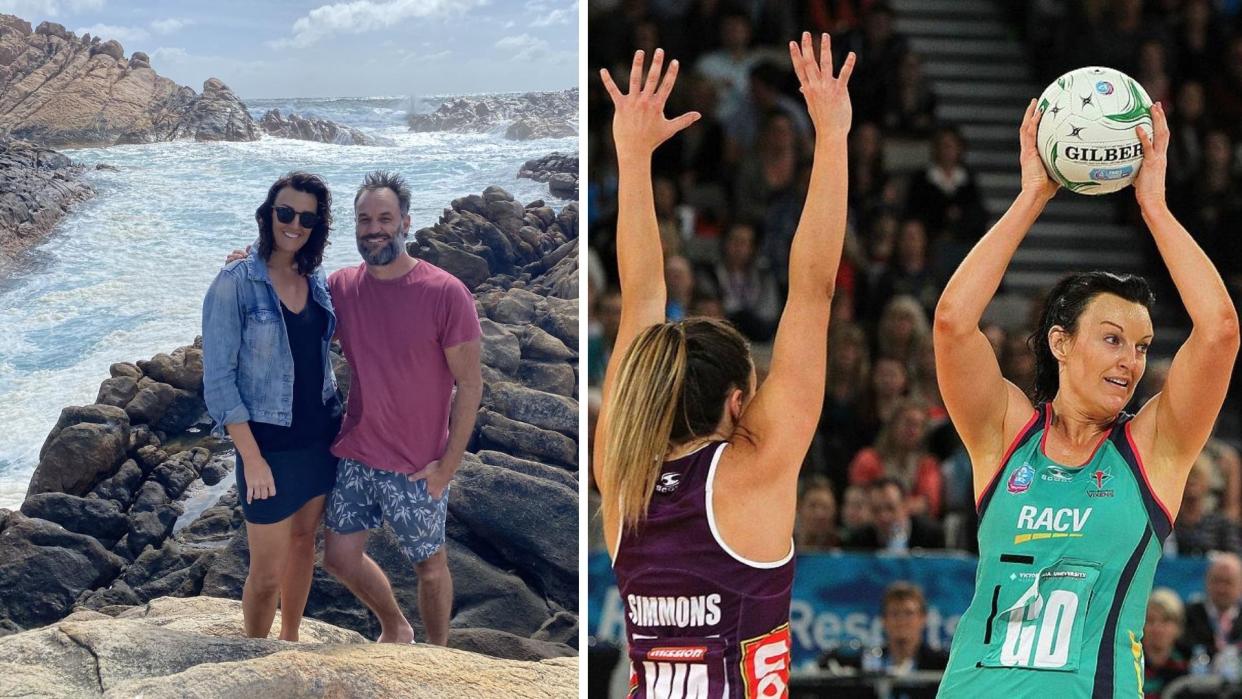What athlete life taught The Block star about surviving Covid crash

When Bianca Chatfield was 16, she developed a huge goal. A rising netball star, she needed to save enough money to buy a car so her parents didn’t need to drive her into the city for training so frequently.
Also read: Where to find free financial help
Her parents cut a deal with her: whatever she earned, they would match. Soon, she hit her goal and went on to become one of Australia’s biggest netball stars, joining the national team at just 18 and enjoying a 17-year career as a professional player.
Today, Chatfield believes determination, resilience and a singular focus on a goal are all common attributes shared by professional athletes that can also help Australians achieve their financial goals.
But there’s one more attribute: athletes know to ask for help when they need it. That’s something Australians should remember as they try to ride out the coronavirus financial shock, Chatfield said.
Chatfield, who also appeared on The Block in 2018, now works in the media, leadership, coaching and the renovation space. So when Covid-19 hit Australia, one of her income sources – speaking – dried up almost overnight.
She, like millions of other Australians, had to suddenly pivot and plan for a very different future.
Reassess and adapt
“I [had] sold a property in December and the first thing that I wanted to do was start getting ready and start looking at apartments,” she told Yahoo Finance.
She wanted another renovation project, but when Covid-19 struck her earnings, she had to check in with her budget. Ultimately, she had to step back from making that major financial decision.
Checking in with her budget was something she hadn’t done in a “long time”, with the process of drawing up her expenses and income a bit daunting. But it uncovered a few obvious areas to save.
For instance, she and her partner were both paying for individual Netflix subscriptions – even though they lived together. Then they had Kayo and Stan.
“We just never ever looked at it in that way,” she said.
Simple steps like cutting back on subscriptions, ordering less takeaway and shopping less online have helped her bottom line.
“I would have saved at least a couple of hundred dollars over a month, and then I’ve kept that going.”
Asking for help
But, as Chatfield emphasised, securing her financial future and building towards her goals also meant asking for help.
“I’ve always had that natural ability that I’m always thinking ahead, and thinking about how I’m going to get there,” she said.
“The other things athletes do quite well is that we have a plan in place and we’re quite good at going to experts to help us get there. If it’s in the gym and you need to improve your speed, you have a strength and conditioning coach who can help you get there. You don’t try and do everything on your own,” she said.
It’s the same with finances. Goals are critical, and asking for help to hit them just makes sense.
Chatfield, who is an ANZ Financial Wellbeing Ambassador, said services like the bank’s free online financial wellbeing check-in provide support for Australians looking for ways to plan their budget, cut expenses, spend better and save.
“[For me] it was about sitting down and going, ‘Okay, this is what’s going to happen. This is what you can control right now and this is what you can’t control.’”
For Chatfield, one thing she could do was funnel a bit of the money saved on takeaway and subscription into a small renovation account.
“I wanted to make sure I was putting a little bit of that money that I was saving from my subscriptions and no online shopping, and then transferring a little bit into a renovation account so that hopefully when I buy, I have that renovation account ticking away and adding up.”
Tune out the noise
Leaders will often discuss the importance of tuning out the noise and focusing on what can be controlled, said Chatfield, and this goes for personal finance too.
According to the media personality, it’s also important not to let fear or embarrassment stop you from checking in with your finances. While it can be galling to realise you’re less in control than you might have thought, it’s always better to know exactly what’s going on.
She said the first few weeks of Covid-19, when one income stream died, left her feeling lost.
“My head was full of all of these noises. It’s a really embarrassing conversation to have about your finances, in that you thought you were on top of it all but you’re not. All of that fear gets in your way,” she said.
But just having an open conversation about it can be like a “big weight lifted off your shoulders”.
“You have an action plan, you have a to-do list and if you can focus on that, then that’s what helps you get through.”
Want to take control of your finances and your future? Join the Women’s Money Movement on LinkedIn and follow Yahoo Finance Australia on Facebook, Twitter and Instagram.

 Yahoo Lifestyle
Yahoo Lifestyle 

